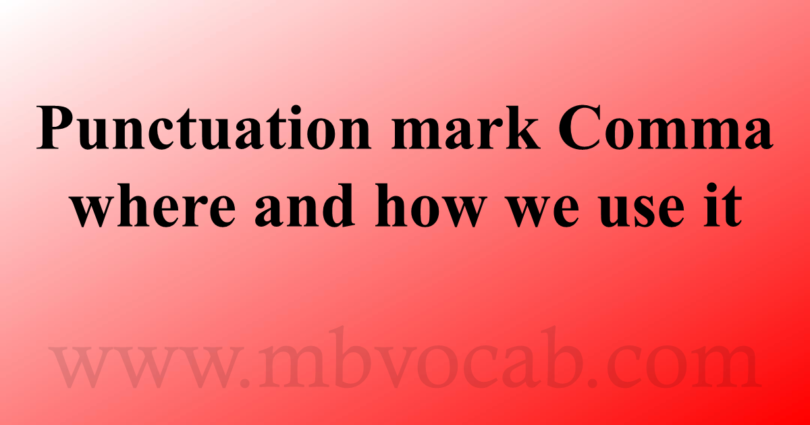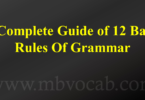Exploring the Enigmatic: Comprehending Commas
Welcome, dear readers, to this discourse on the enigmatic punctuation mark, the comma, and its myriad applications. Within these lines, I shall delve deep into the intricacies of comma usage. As we navigate through this linguistic terrain, we shall discover that punctuation marks, particularly the comma, hold a pivotal role in the realm of effective writing, notably in the domain of essays.
The Punctuation Puzzle: Comma Unveiled
It is paramount to acknowledge that the utilization of commas is a subject of great depth and diversity. In the tapestry of written language, the comma stands as a subtle yet essential thread that weaves sentences together, giving them structure and coherence. However, it’s imperative to note that the use of a comma before the conjunctions “and” or “or” is a matter of discretion in American English, rendering it optional. To exemplify:
I procured a book, a pen, a register, and a sharpener. Did he procure a book, a pen, or a register?
She penned a letter, a novel, a drama, and a story.
Was she composing a letter, a novel, or a story? He consumed an apple, an orange, a banana, and a mango.
Is he presently consuming an apple, an orange, or a mango?
Probing further, when “and” serves as the connective tissue between two closely related nouns, the usage of the indefinite article “a/an” before both nouns is customary in British English, although it’s not repeated before the second noun. For instance:
British English convention:
He possesses a bus and a car.
She possesses a bus and a car.
Dispensing with “a/an” in the second noun:
He possesses a bus and car.
She possesses a bus and car.
Furthermore, commas should be absent when dealing with phrasal adjectives. For example:
She is a girl of fifteen years.
I embarked on a 20-day journey through England.
The Prime Minister of England embarks on a three-day visit to Pakistan.
Additionally, in cases where dependent clauses precede independent clauses, it is essential to determine whether commas should separate them. For instance:
If he applies himself diligently, success shall surely follow.
Unless he completes his assignment, do not permit him to depart.
Upon his arrival, promptly direct him to me.
Under the condition that you divulge the truth, I shall grant you forgiveness.
In the realm of independent clauses, it is pertinent to note that they are separated by periods, and each independent clause commences with a capital letter. Using commas to separate independent clauses is an incorrect practice, as illustrated:
Correct:
They favor chess; he, on the other hand, adores cricket.
We toiled diligently while he slumbered.
He instructs at a school, while she imparts knowledge in a college.
They savor chess, while he revels in cricket.
Incorrect:
We toiled. He slumbered.
He instructs at a school. She imparts knowledge in a college.
They savor chess. He revels in cricket.
Furthermore, if independent clauses joined by coordinating conjunctions are exceedingly brief, the usage of a comma before “and,” “but,” or “or” is dispensable, as exemplified:
He is honest but she is not.
She is simple but he is astute.
They were melancholic, while he was elated.
He is intelligent, or we are dull.
They are fit, whereas you are unfit.
I devoured an apple, and he savored a mango.
Exploring Coordinated Adjectives
Now, let us delve into the realm of “co-ordinate adjectives.” These are adjectives that modify a noun and can be connected by “and” rather than a comma. For instance:
He is an intelligent, hardworking laborer.
He is an intelligent and hardworking laborer.
He resides in a vast, opulent hotel.
He resides in a vast and opulent hotel.
They were skilled, swift drivers.
They were skilled and swift drivers.
Additionally, it’s worth noting that each pair of words linked by “and” is separated by commas, as demonstrated:
Rich and poor, black and white, kings and slaves, all stand as equals in Islam.
Human and animal, angel and fairy, all are divine creations.
Intelligent and foolish, affluent and destitute, beasts and reptiles, all share the gift of life bestowed upon them by the divine.
Contrasting Ideas and Commas
Incorporating contrasting ideas into sentences with “but” or “not” requires the use of commas to separate these contrasting words, as illustrated:
We ordered meat, not rice.
We hold affection for them, not for him.
Students should be encouraged, not discouraged.
The quandary lies not in how to reach Karachi, but rather when to embark on the journey.
Money should be conserved, not squandered.
The underprivileged should be honored, not denigrated.
When a subject features two predicates joined by “and” or “but,” the employment of a comma is typically avoided, as demonstrated:
He leaped over me and settled into the chair.
He assumed his place on the chair and discarded his coat.
He attempted twice but failed to pass the C.S.S.
I attempted numerous times but failed to meet you.
Conversely, when contrasting ideas incorporate words like “but” or “not,” separating them with commas is customary, as illustrated:
We ordered meat, not rice.
We admire them, not him.
Reporting Speech and Commas
In the realm of reported speech, commas are employed after the reporting speech if it precedes the reported speech:
He states, “I am en route to Karachi.”
They declared, “We shall provide our unwavering support.”
Occasionally, the reported speech follows the reporting speech, in which case, commas encompass the reported speech, and a period follows the reporting speech:
“I am en route to Karachi,” he states.
“We shall provide our unwavering support,” they declared.
In scenarios where the reported speech is fragmented by the intervening reporting speech, a comma follows the initial fragment, enclosed within inverted commas, and a period follows the reporting speech:
“I shall visit Karachi,” Mrs. Nadeem said, “if I am granted leave.”
“We shall support you,” they proclaimed, “when you beckon us for assistance.”
In cases where multiple sentences constitute the reported speech, enclosing the entire reported speech in inverted commas and punctuating each internal sentence according to standard rules of punctuation is customary. It is advisable not to enclose each sentence of the reported speech with inverted commas individually:
Correct:
Ali remarked, “I am acquainted with him. He is an honorable person.”
“Have you ever been his neighbor?”
Incorrect:
Ali remarked, “I am acquainted with him.” “He is an honorable person.”
“Have you ever been his neighbor?”
Addressing and Commas
When directly addressing a person, a comma is placed immediately after their name. If the name is integrated into the sentence, commas are inserted before and after the name, exemplified here:
Mother, may I assist you?
Father, when will we return home?
Oh, God, shield us from malevolence.
Mr. Asif, have you visited Challenger before







